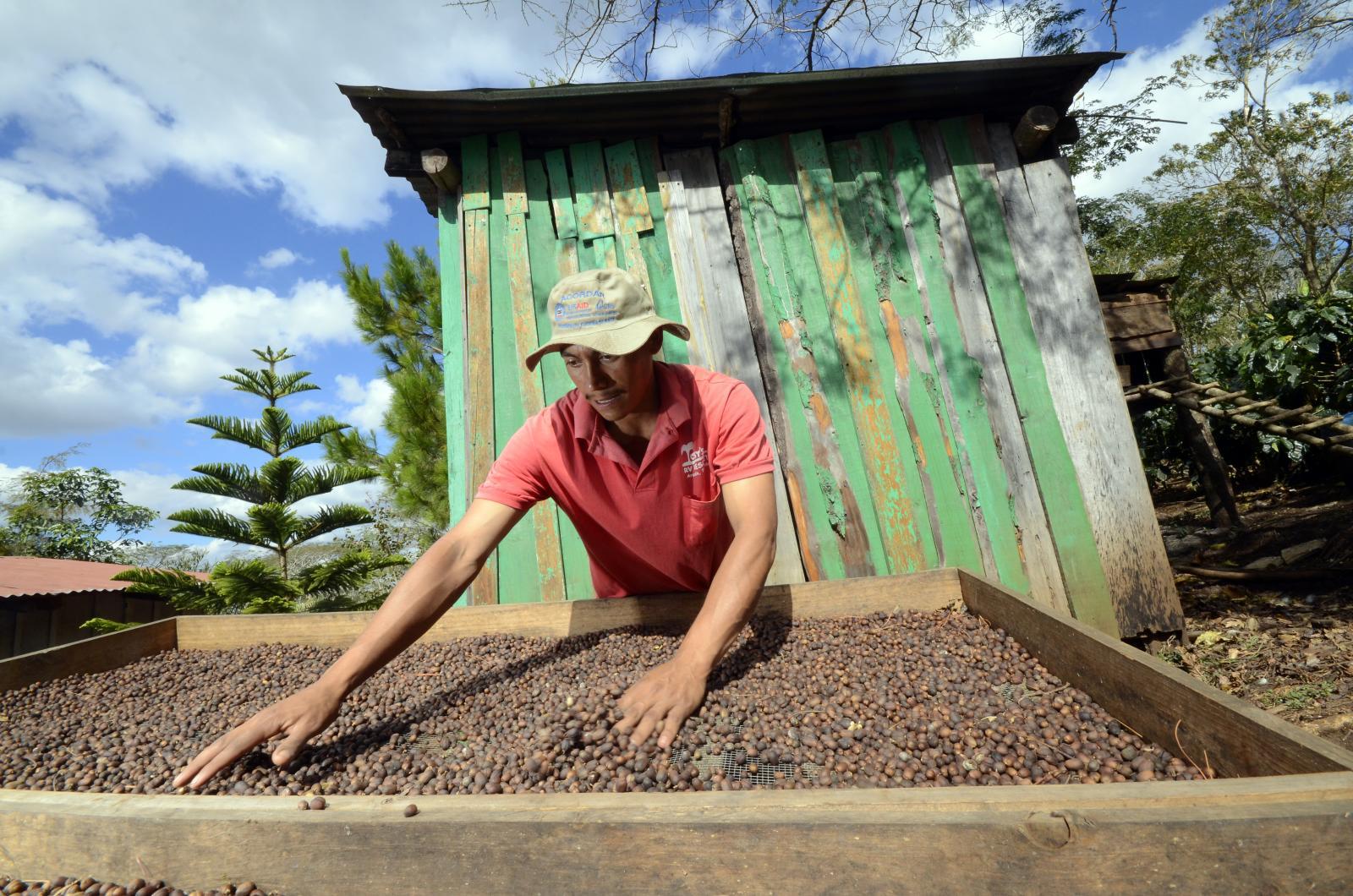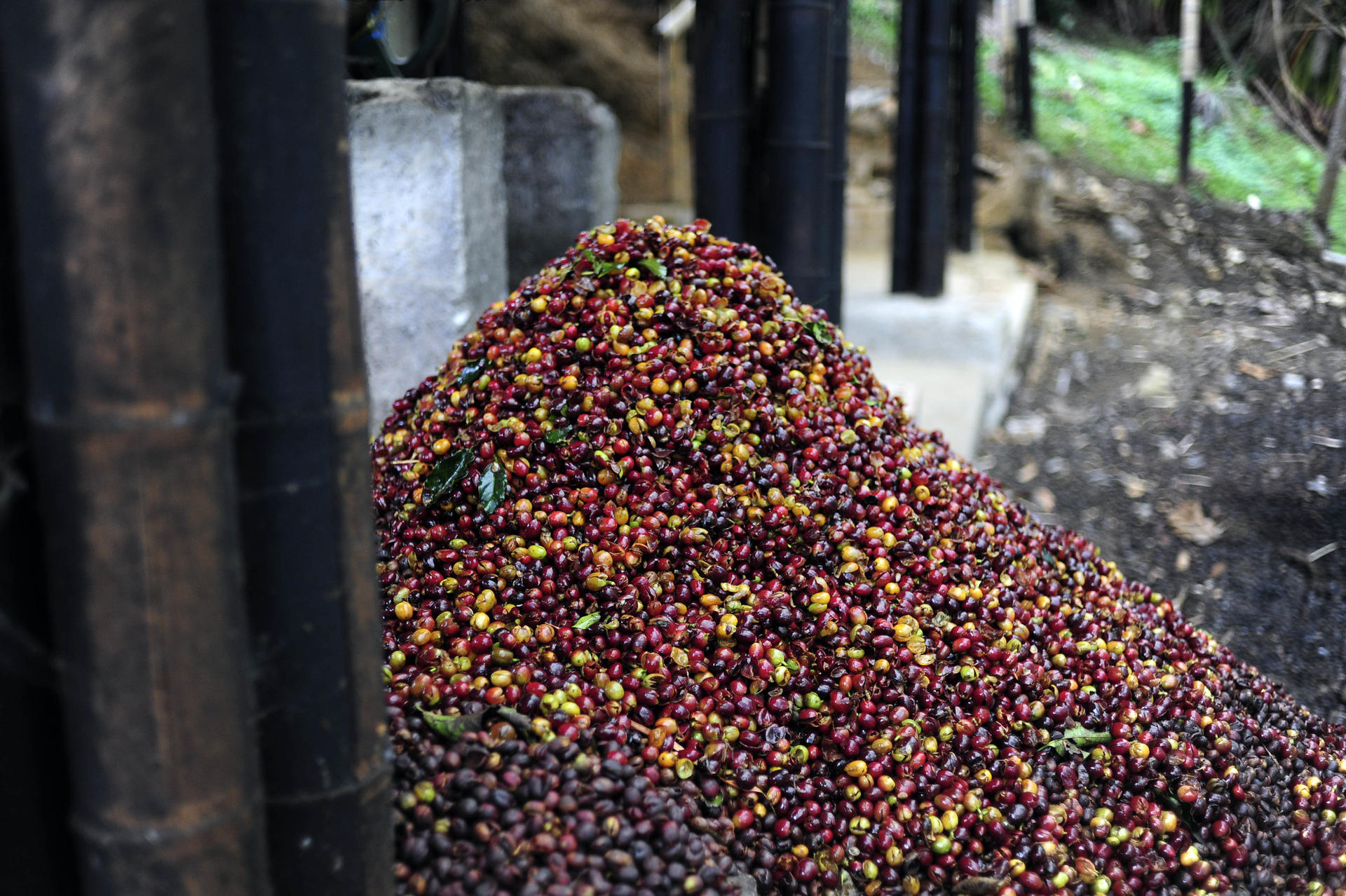Blog Navigating environmental and social risk in supply chains: how research supports sustainable business

As businesses come under increasing pressure to ensure that their supply chains are not causing harm and are in fact sustainable, social and environmental risk factors such as deforestation or child labor need to be managed. But current approaches focus on symptoms of problems rather than their root causes. A tool has been developed to help businesses better understand the root causes of complex social and environmental sustainability problems, to identify long-term solutions and manage risk within their supply chains.
The Alliance of Bioversity International and CIAT has worked together with FMO, the Dutch entrepreneurial development bank, and global green coffee supplier Mercon Coffee Group to develop a new tool to assess environmental and social risks. The tool aims to diagnose risks in supply chains to support the design of mitigation actions that companies can implement to minimize negative environmental or social outcomes despite risks such as climate change, competing land uses or forced labor. It aims to support businesses to adapt and overcome threats to sustainable production in different countries and local contexts, and has already been used in 9 countries around the world, to develop sustainable value chains in coffee. It is also being tested in more countries in products including cocoa, maize and cashew nuts.
The tool currently looks at risks related to labor including child labor and forced labor, human rights and environmental degradation and contamination. While the tool focuses on three specific areas of social and environmental risk, the process behind it can be adapted to ongoing shifts in data availability and areas of concern. It combines an assessment at the macro or national level to understand the overall context and regulatory framework in which supply chains operates, including what is common practice in a given country and the commodity. A micro-level assessment will focus specifically on a company’s supply chain in a given country, using data to assess risk factors specific to the company’s supply chain.
Instead of focusing on actions to avoid negative practices in supply chains, for example, reducing the risk of employing children by conducting trainings; or reducing the risk of deforestation by encouraging businesses to reduce, reuse and recycle, the tool aims instead to identify fundamental root causes of such practices and solutions that might address them. Poverty or low levels of compliance with labor regulations are often root causes of child labor that supply chain actors can also address in their sourcing strategies.
Jenny Wiegel, a social scientist at the Alliance, explains:
“We may not necessarily be able to measure child labor in a supply chain by asking about it, because it is something that people hide. So instead, we would think about what different root causes for child labor are, and then find out if those causes are present. If all the incentives for child labor are there, we should behave as if it’s a high probability occurrence within the supply chain, and make sure we have good practices in place to mitigate.”
“For example, instead of asking whether children are working –although we also look at that– we would look at high levels of poverty; what school attendance rates are like; whether families are migrating to work as they would be likely to have children with them who are also working; whether employment is largely informal making it easier for children to be incorporated. Our research model helps to think through these issues systematically to get to the root causes and then find solutions.”

Freshly harvested coffee beans, Colombia.
Jessenia Angulo, Senior Environmental and Social Officer, FMO, notes:
As a development bank, FMO strives to invest responsibly and create sustainable impact in developing countries. In that mission, capital, knowledge, and networks are our key mechanisms to support local stability, decent work, less inequality and climate action. Global supply chains are essential to shorten the access to food, energy, and production inputs in these development countries, for that reason, we guide our clients through risk mitigation concepts and support the implementation of risk management practices to turn supply risks into opportunities to create positive impact.
Understanding the context and root causes of environmental and social risks is a critical requirement for efficiently addressing the effects in international supply chain. As not all risks are equal, we must explore different approaches to understand exposure, occurrence and to prioritize intervention. This concept supports supply chain manager to identify and understand the best entry points to create thorough and long-term solutions in their supply chains while reducing inequalities in developing nations.
Together, the Alliance, FMO and Mercon have designed the environmental and social risk assessment tool to assess a client’s supply chain and understand influences running from a root cause to a symptom or problem for a range of issues. While some factors may be beyond the control of a single business, businesses can contribute to creating problems or exacerbating them through their own business practices. So, the tool also supports businesses to understand risks in the environment they operate in– such as areas where degradation is widespread and where sourcing a commodity may be a risk– but also to understand how their own business practices can contribute or mitigate this risk.
Giacomo Celi, Mercon Coffee Group Sustainability Director, explains:
“As a business, we have to take decisions based on data, science and numbers. There are lots of tools for measuring biodiversity or human rights; but there are no values to this and you can easily get lost in the process of defining the best metrics to measure sustainability. What was important in this work with the Alliance was being able to define sources of information that are both contextual to international frameworks and legislations and relevant for business purposes. For example, the risk of child labor can be analyzed very technically in terms of the legislation and ILO standards; but what about risk perception in the industry? Factoring in multiple voices from media or civil society are also important when defining the level of risk in a specific country. Attributing a level of risk was helpful to guide decisions.”
As a result of this collaboration, Mercon has now included the level of control over risk as a Key Performance Indicator in assessments to track its ambition of 100% sustainable sourcing by 2030. Mercon has also used the supply chain risk assessment to redesign how they manage sustainable sourcing as a company. The information has supported FMO in creating a standardized tool to assess client risk to inform their investment and loan implementation strategy. FMO is also working with Alliance researchers to build additional tools to support how companies design and assess risk mitigation strategies and monitor their results over time; and to apply the standardized toolkit with additional clients.
Mercon Coffee Group
Mercon Coffee Group is a global, green coffee supplier that is vertically integrated and committed to consistently delivering the right quality of coffee to clients while creating sustainable livelihoods in coffee growing communities. Founded in 1952 as a coffee export company, Mercon is headquartered in the Netherlands and ranks among the top 10 leading coffee suppliers in the world, delivering tailored services to its clients in more than 60 countries from its offices located across the Americas, Europe, Africa and Asia. Mercon is a champion of sustainability and drives a number of initiatives, including its proprietary LIFT program that is focused on innovation and the prosperity of coffee communities around the world. Additionally, Mercon actively supports Seeds for Progress, the nonprofit organization that aims to improve education to help grow the coffee communities of tomorrow. Mercon has built an integrated coffee supply chain recognized for its excellence in commercial and specialty coffees as well as its operations across farming, production, export, logistics and risk management.
For more information: merconcoffeegroup.com.
FMO
FMO is the Dutch entrepreneurial development bank. As a leading impact investor, FMO’s mission is to create a more sustainable future through private sector investments in over 80 developing countries and emerging economies across the globe. Not only does FMO create and support jobs by investing in ambitious projects and entrepreneurs, the bank also focuses on generating income and long-term business growth with the aim of making the world a better place.
For more information: fmo.nl
